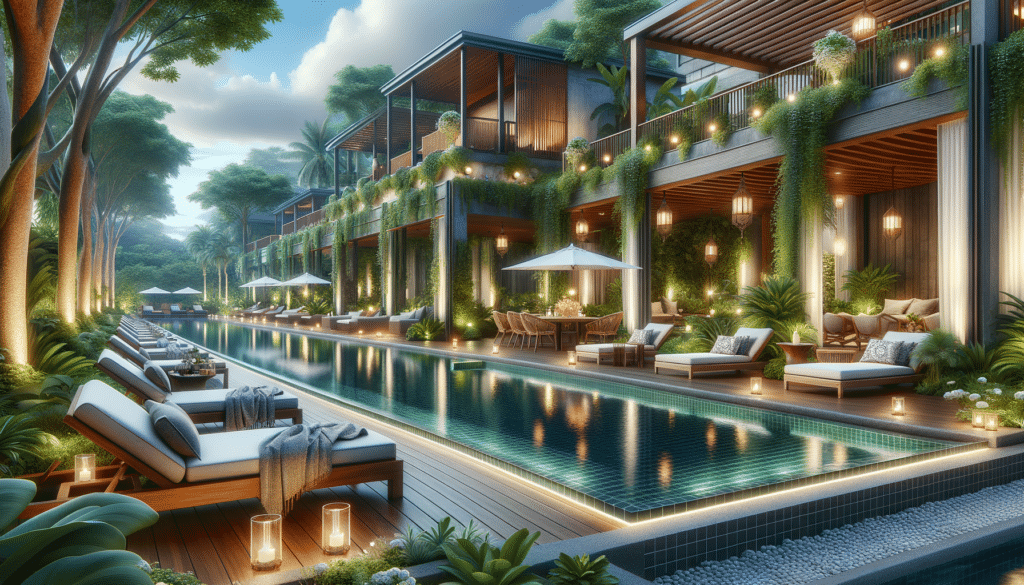The Importance of Pool Decks in Outdoor Design
Pool decks are more than just a platform surrounding a swimming pool; they are a vital component of outdoor design that enhances both the aesthetic and functional value of a property. A well-designed pool deck can transform a simple swimming area into a luxurious outdoor oasis. It provides a safe, slip-resistant surface for swimmers and sunbathers, while also serving as a social hub for gatherings and relaxation. The choice of materials, design, and layout can significantly impact the overall look and feel of the outdoor space, making it crucial for homeowners to invest time and resources into planning their pool deck carefully.
Types of Materials for Pool Decks
When it comes to selecting materials for pool decks, homeowners have a plethora of options, each offering unique benefits and aesthetic appeal. Concrete is one of the most popular choices due to its durability and versatility. It can be stamped or stained to mimic the appearance of natural stone or tile, providing a high-end look at a more affordable price. Pavers are another excellent option, known for their easy installation and wide range of styles and colors. They offer a classic look and can be easily replaced if damaged. For those seeking a more natural appearance, wood decks provide a warm, inviting feel. However, they require regular maintenance to prevent rot and warping. Composite decking is a low-maintenance alternative to wood, offering the same aesthetic appeal without the need for frequent upkeep.
Design Considerations for Pool Decks
Designing a pool deck involves more than just selecting materials; it requires careful consideration of various factors to ensure both functionality and aesthetic appeal. One of the primary considerations is the deck’s layout and how it integrates with the pool and surrounding landscape. The deck should provide ample space for lounging and socializing, while also ensuring safe and easy access to the pool. Additionally, the choice of colors and textures should complement the existing outdoor decor and architecture, creating a cohesive look. Lighting is another critical aspect, as it enhances safety and ambiance during evening use. Incorporating features such as built-in seating, planters, or fire pits can add both functionality and visual interest to the pool deck.
Maintenance Tips for Pool Decks
To ensure the longevity and appearance of a pool deck, regular maintenance is essential. The type of maintenance required will depend on the materials used. Concrete decks should be sealed every few years to protect against staining and water damage. Paver decks may require periodic re-sanding of joints to maintain stability. Wood decks need regular cleaning and sealing to prevent rot and insect damage, while composite decks require minimal upkeep, typically just regular cleaning to remove dirt and debris. It’s also important to inspect the deck regularly for any signs of damage or wear and address issues promptly to prevent further deterioration.
Cost Considerations and Budgeting for Pool Decks
The cost of installing a pool deck can vary widely depending on factors such as the size of the deck, the materials chosen, and the complexity of the design. Concrete is generally one of the more affordable options, while natural stone and high-end pavers can significantly increase the cost. Homeowners should also consider the long-term maintenance costs associated with different materials when budgeting for their pool deck. Investing in quality materials and professional installation can help ensure a durable, attractive deck that adds value to the property. It’s important to obtain multiple quotes from reputable contractors and consider both the initial and ongoing costs when planning a pool deck project.

